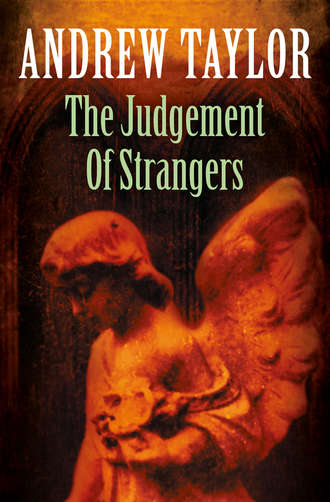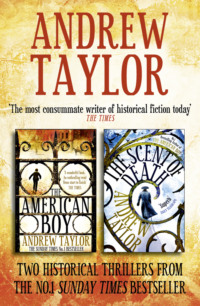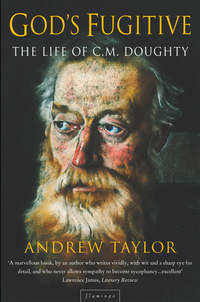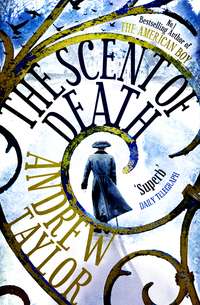
Полная версия
The Judgement of Strangers
The next morning I walked up to Roth Park. Vanessa was at work, and we had arranged for Michael to spend the day with the doctor’s son, Brian. I had not been to Roth Park since May, when the last of the Bramleys’ patients had moved to another nursing home. Privately I had never had much time for Mr and Mrs Bramley, a red-faced and loud-voiced couple who, I suspected, bullied their patients.
It was another fine day. With a copy of the parish magazine under my arm, I strolled down the road, past the church. The traffic was still heavy. In the last thirty or forty years, houses had mushroomed like a fungus along the highways and byways of Roth. The fungus had spread away from the highways and byways and devoured the fields between them. All the occupants of these new houses appeared to own at least one car.
I turned into the drive. On the right was the south wall of the churchyard. To the left, the turbid waters of the Rowan were visible through a screen of branches, nettles and leaves. It was mid-morning and already very warm. It was too hot to hurry.
I was not in the best of moods. I had wanted to make love the previous evening, but when I came to bed Vanessa was asleep. Or rather – I uncharitably wondered – she was pretending to be asleep.
After about sixty yards, the drive dived into a belt of oak trees. It was cooler here, and I lingered. At the time this felt an indulgence. Now, when I look back, it seems as though I were clinging to my state of innocence. A track went off to the right, following the west side of the churchyard; it passed through the paddock behind the Vicarage garden, which we hoped to use as our fete car park, and ran north-west towards the drowned farmlands beneath the Jubilee Reservoir.
I walked on. Once past the oaks, the park opened out. To the south was the Rowan, now a silver streak, lent enchantment by distance. Beyond it, housing estates covered what had once been pastureland south of the river. On the right were the roofs of another housing estate south of the reservoir, encroaching on the grounds from the north.
The drive, which had been moving away from the river, changed direction and swung towards it in a long, leisurely leftward loop around the base of a small hill. There, sheltered by the hill and facing south, was Roth Park itself.
Looked at with an unbiased eye, the house was not a pretty sight. Thanks to Audrey’s book, I now knew that the great fire of 1874 had destroyed most of a late-seventeenth-century mansion. The owner of the estate, Alfred Youlgreave, had built a plain, ugly, redbrick box on the same site with an incongruous Italianate tower attached to the west end.
As the house came into view, two things happened. First, I had the sensation, rightly or wrongly, that I was being watched, that behind one of the many blank windows was a face. I had an impression of stealth, even malice. I knew, of course, that it was more than possible that I was entirely mistaken about this – that the sensation had no external correlation whatsoever; that I was merely projecting my inner difficulties on to the outside world. That did not make the experience less unpleasant.
The other feeling was, if anything, even more powerful. I wanted to run away. I wanted to turn and scurry down the drive as fast as I could. It was not, strictly speaking, a premonition. It was in no sense a warning. I was simply scared. I did not know why. All I knew was that I wanted to run away.
But I did not. I had spent most of my life learning how to restrain my feelings. Besides, I remember thinking, think how odd it would look if there were a watcher: if he or she saw a middle-aged clergyman in a linen jacket hesitating in front of the house and then leaving at a gallop. Our dignity is very precious to almost all of us; and fear of losing face is a more powerful source of motivation than many people imagine.
I walked towards the house. There was an overgrown shrubbery on the right. Outside the house, marooned in a sea of weed-strewn gravel, was a large stone urn stained with yellow lichen. On the plinth – again, according to Audrey – was a plaque commemorating a visit that Queen Adelaide had paid to the Youlgreaves’ predecessors in 1839. I paused by the urn, pretending to examine the worn lettering. I really wanted a chance to look more closely at the house.
I could see no one at any of the windows, but that proved nothing. The building was not as imposing as it looked from a distance. Several slates were missing from the roof at the eastern end. A length of guttering had detached itself and was hanging at an angle. There was a large canopy sheltering the front door, a wrought-iron porte-cochère supported by rusting cast-iron pillars, which gave the house the appearance of a provincial railway station.
Parked beneath the canopy was the Cliffords’ E-type Jaguar, the car which had aroused Michael’s admiration. I marched up the shallow steps to the front door and tugged the bell pull. It was impossible to tell what effect, if any, this had. I noted with irritation that my fingers had left smudges of sweat on the pale-blue cover of the parish magazine.
No one answered the door. I rang the bell again. I waited. Still, nothing happened. I did not know whether to be relieved or irritated. I moved away from the door and walked a few paces down the drive. It felt like a retreat. I didn’t like the idea that I might be running away from something. Then I heard music.
I stopped to listen. It was faint enough to make it difficult to hear. Some sort of pop music, I thought; and suddenly I guessed where the Cliffords were. It was a fine morning, their first in their new home. They were probably in the garden.
I was familiar with the layout of the place from my years of visiting the Bramleys and their patients. I followed a path that led through the shrubbery at the side of the house to the croquet lawn below the terrace on the east front. The lawn was now a mass of knee-high grass and weeds. On the terrace, some four feet above it, were two people in deckchairs, with a small, blue transistor radio between them. A male voice was croaking against a background of discordant, rhythmic music. I walked on to the lawn and raised my Panama hat.
‘Good morning. I hope I’m not disturbing you. My name is David Byfield.’
Two faces, blank as masks, turned towards me; astonishment wipes away much of a person’s outward individuality. If the Demon King had appeared before them in a puff of smoke, the effect would have been much the same.
The moment of astonishment dissolved. A young man switched off the radio and stood up. He was skinny, his figure emphasized by the fitted denim shirt and the hip-hugging bell-bottomed jeans. He had a beaky nose and bright, pale-blue eyes. His hair was thick and fair, with more than a hint of ginger, and it curled down to his shoulders. A hippy, I thought, or the next best thing. But I had to admit that the long hair suited him.
‘Good morning. What can we do for you?’
I took a step forward. ‘First, I’d like to welcome you to Roth. I’m the vicar.’
The man dropped the cigarette he was holding into the bush of lavender which sprawled out of an urn at the edge of the terrace. ‘The church at the gates?’ He came down the steps to the lawn and held out his hand. ‘I’m Toby Clifford. How do you do?’
We shook hands. I realized that he was a little older than I had thought at first – perhaps in his middle or late twenties.
‘This is my sister Joanna.’ Toby turned back to her. ‘Jo, come and say hello to the vicar.’
I looked up at the terrace. There was a flurry of limbs in the other deckchair. A young woman stood up. She wore a baggy T-shirt which came halfway down her thighs and – I could hardly help noticing as she scrambled out of the deckchair – green knickers. Short hair framed a triangular face.
‘The vicar,’ she said and giggled. ‘Sorry. Shouldn’t laugh. Not funny.’
I held out my hand. ‘It’s the dog collar. It often has that effect on people.’
Her eyes widened with surprise. I guessed she was a year or two younger than her brother.
‘Would you like some coffee?’ Toby said. ‘We were just going to make some.’
Конец ознакомительного фрагмента.
Текст предоставлен ООО «ЛитРес».
Прочитайте эту книгу целиком, купив полную легальную версию на ЛитРес.
Безопасно оплатить книгу можно банковской картой Visa, MasterCard, Maestro, со счета мобильного телефона, с платежного терминала, в салоне МТС или Связной, через PayPal, WebMoney, Яндекс.Деньги, QIWI Кошелек, бонусными картами или другим удобным Вам способом.








